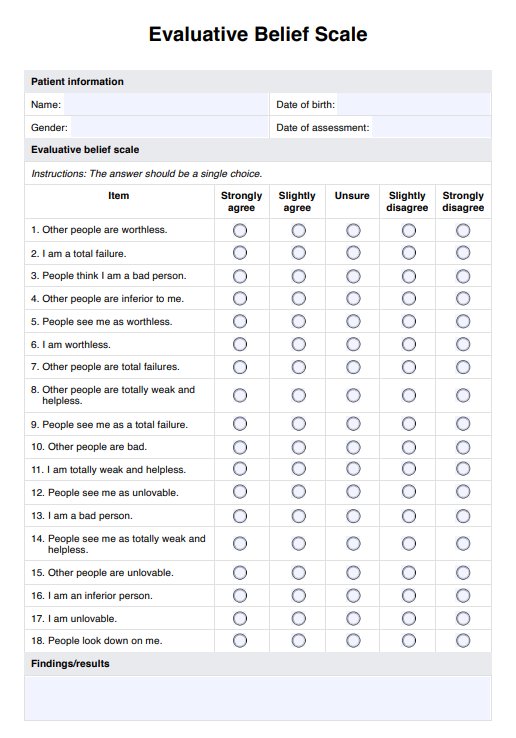The Evaluative Belief Scale is a psychometric tool used to assess an individual's self-evaluative and other-evaluative beliefs, particularly focusing on negative personal evaluations. It helps healthcare practitioners identify cognitive patterns linked to emotional disturbances like depression and anxiety.

Evaluative Belief Scale
Access a free downloadable Evaluative Belief Scale PDF for your research or evaluation needs. Get Carepatron's free PDF template and example of this valuable tool now.
Evaluative Belief Scale Template
Commonly asked questions
An example of an evaluative belief is the thought “I am worthless,” reflecting a negative judgment about oneself rather than an objective fact. Such beliefs can significantly influence emotional responses and behavior patterns.
An informational belief describes facts or objective realities (e.g., "It is raining today"), while an evaluative belief makes a judgment about a fact or experience (e.g., "Rain ruins everything and is terrible"). Evaluative beliefs are more closely tied to emotions and psychological well-being.
EHR and practice management software
Get started for free
*No credit card required
Free
$0/usd
Unlimited clients
Telehealth
1GB of storage
Client portal text
Automated billing and online payments











